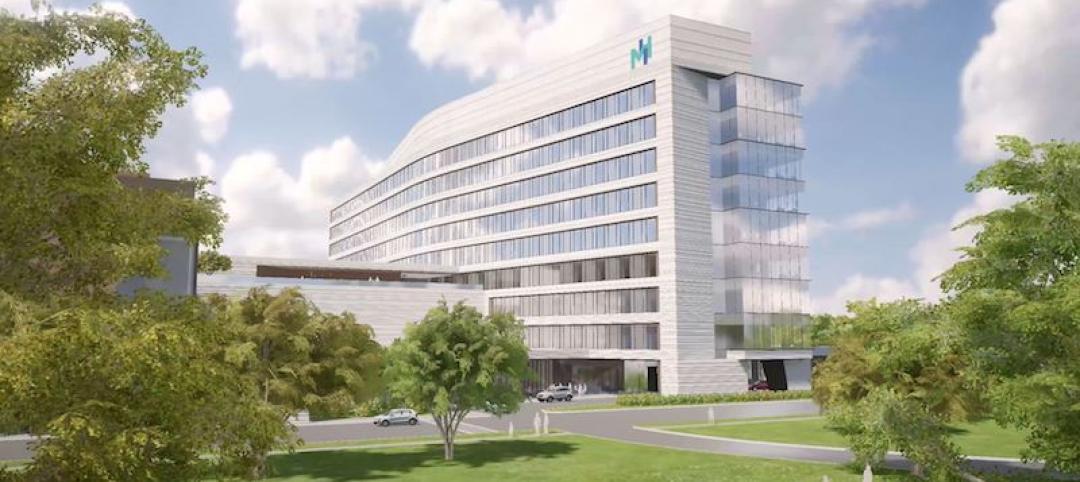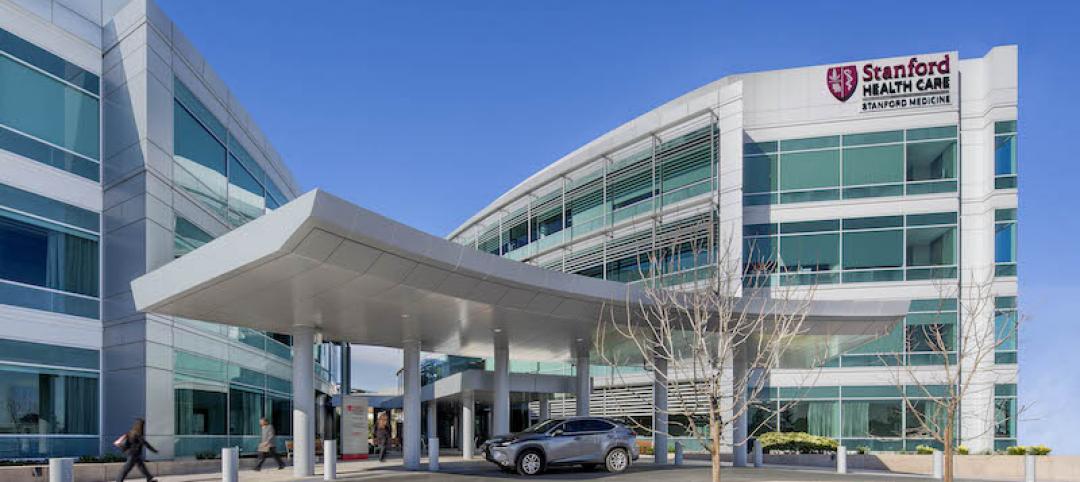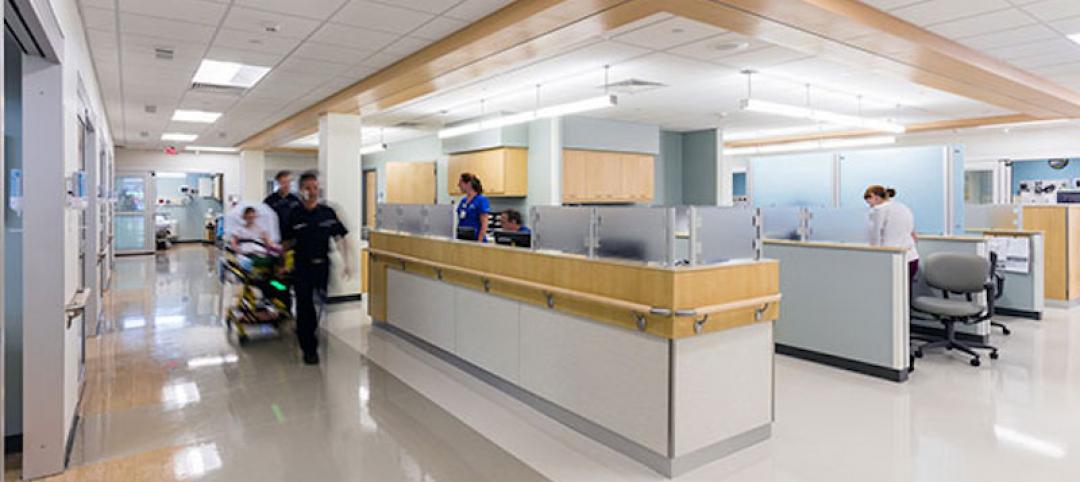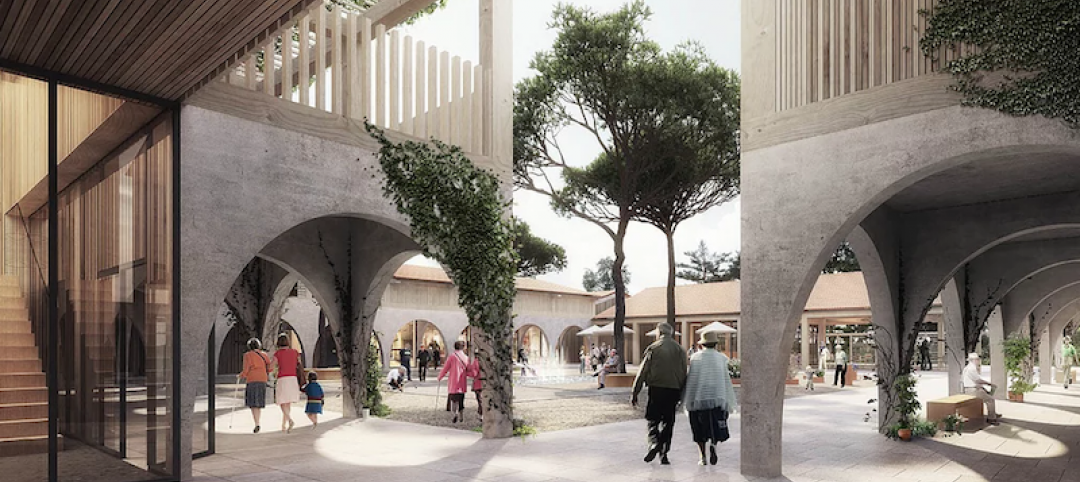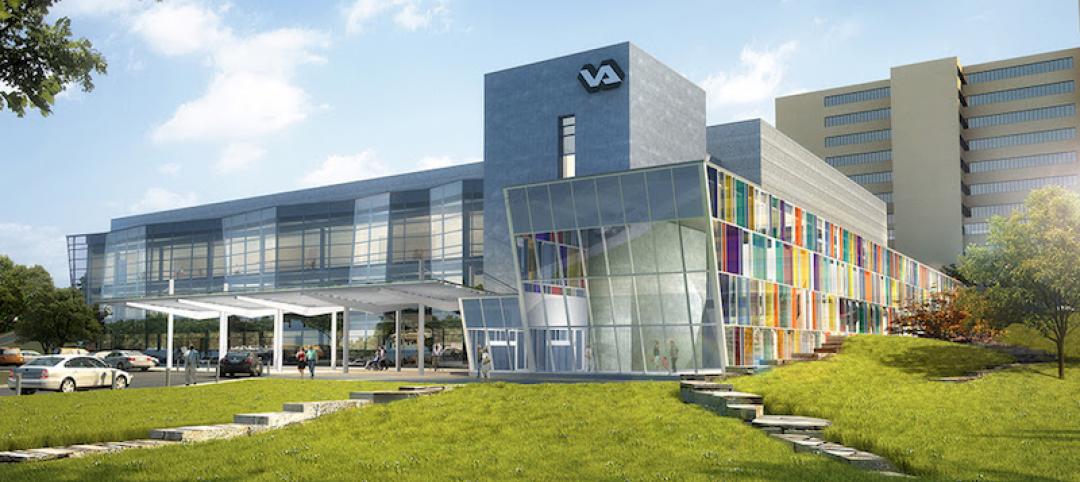
The team behind the new Holyoke (Mass.) Health Center was aiming for more than the renovation of a single building—they were hoping to revive an entire community.
Holyoke's central business district was built in the 19th century as part of a planned industrial town, but over the years it had fallen into disrepair. Among the many empty storefronts and dilapidated buildings stood three that used to make up the McAuslan & Wakelin department store. Where most people saw broken glass and crumbling brick, the CEO of the Holyoke Health Center instead saw a medical mall—a new center of downtown activity and business where the city's large, underserved low-income community could find access to health care.
Boston's Steffian Bradley Architects (SBA) began work on reconstructing the 110,000-sf complex into a space where a wide variety of health organizations could come together under one roof. The facility would house a medical suite for specialists such as radiologists, physical therapists, and midwives. There would be a dental practice, patient education spaces, a teaching kitchen, health service enrollment centers, and a large central plaza to improve wayfinding. All told, planners expected the complex to serve 17,000 patients and create more than 350 new jobs.
 |
| A four-story glass atrium connects the health center’s three buildings (left). The balustrade on the Dwight Building, which sits on the corner, had to be matched to the originals to qualify for historic grants (right). PHOTO: ROBERT BENSON PHOTOGRAPHY |
The buildings first needed some work. The three structures, all built around the turn of the 20th century, were well-used over the years and little evidence of their original interior appearance remained. Some features, such as mosaic tile floors, polished marble stair treads, and wainscoting, were intact. But others, such as the buildings' decorative tin ceilings, were scarred from the addition of room partitions and mechanical runs.
Then, several months into the design process, the client discovered they would need federal historic restoration grants to complete the project—and that meant returning the buildings to their former glory. To accommodate this, SBA undertook forensics and historical research in order to document and re-create original architectural features. For instance, a balustrade that formed the roof cornice had been demolished prior to the decision to apply for federal funding. To rebuild it, SBA took a mold of a remaining baluster and used it to duplicate the originals.
Other federal requirements took more ingenuity to overcome. The grant stipulated that walls had to be re-plastered rather than covered with gypsum board. But with the prospect of strollers and wheelchairs banging into the walls every day, the team worried that standard plaster couldn't take the blows without crumbling. SBA solved the problem by using Xorel wallcovering, a durable polyethylene textile that softens hard knocks, allowing the plaster to hold its shape.
The project's pride and joy lies at its center, in the new glass atrium that links the three buildings and acts as a transparent interior main street. The atrium also makes the Holyoke Health Center MAAB/ADA compliant by ganging together the buildings' disparate grade levels through a series of stairs and ramps, as well as providing space for two new hospital elevators.
Opened in early 2006, the Holyoke Health Center has served several thousand patients and inspired the redevelopment of many surrounding properties—meeting its original goal of revitalizing the Holyoke community.
Related Stories
Healthcare Facilities | Jul 10, 2018
HGA designs acute care hospital for MetroHealth in Cleveland
The facility’s master plan creates a ‘hospital in a park.’
BIM and Information Technology | Jul 9, 2018
Healthcare and the reality of artificial intelligence
Regardless of improved accuracy gains, caregivers may struggle with the idea of a computer logic qualifying decisions that have for decades relied heavily on instinct and medical intuition.
Healthcare Facilities | Jun 28, 2018
New Stanford Healthcare outpatient building opens in Redwood City
The facility recently celebrated its grand opening with a ribbon-cutting ceremony.
Healthcare Facilities | Jun 26, 2018
The future of the ambulatory surgery centers and acuity levels
Offering the one-two punch of cost savings and convenience, ASCs are increasingly becoming the venue of choice for both physicians and patients.
Healthcare Facilities | Jun 26, 2018
Mesquite, Texas to receive 60-acre ‘wellness village’
Construction is anticipated to begin on the initial phase in mid-2019.
University Buildings | Jun 25, 2018
Virginia Commonwealth has at least three major expansion projects under construction
New buildings for outpatient care, engineering, and rehabilitation of serious injuries and debilities are scheduled to be completed in 2020.
Healthcare Facilities | Jun 6, 2018
French 'Alzheimer’s Village' designed to resemble a medieval bastide
The new facility will provide research on a new way of treating Alzheimer’s patients.
Healthcare Facilities | May 29, 2018
Will telemedicine change the face of healthcare architecture?
Telemedicine is a broad term that covers many aspects and mediums of care, but primarily it refers to the use of video monitors to allow a virtual face to face consultation to take place.
| May 24, 2018
Accelerate Live! talk: Security and the built environment: Insights from an embassy designer
In this 15-minute talk at BD+C’s Accelerate Live! conference (May 10, 2018, Chicago), embassy designer Tom Jacobs explores ways that provide the needed protection while keeping intact the representational and inspirational qualities of a design.
Healthcare Facilities | May 24, 2018
The design of the new Omaha VA Ambulatory Care Center incorporates veteran symbolism throughout the building
Leo A Daly designed the facility.


